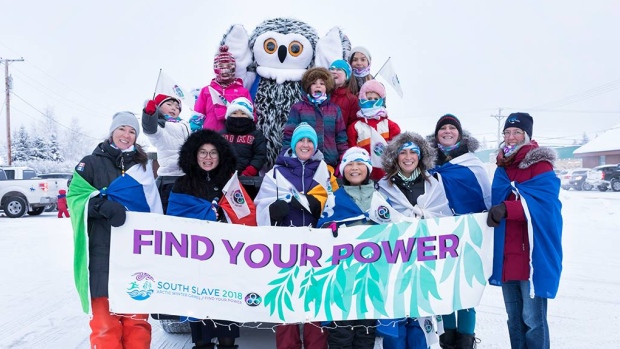This year’s Arctic Winter Games have been canceled over fears of coronavirus spread
The move to cancel the biennial games as a precautionary measure was "a tough decision," Yukon officials said.

On Saturday, officials announced that the Arctic Winter Games would be canceled due to the coronavirus that causes COVID-19.
The games, which are held every two years, were scheduled to begin on Saturday, March 15, in Whitehorse, Yukon.
“We believe that this is the most responsible course of action, in light of the concerns around the spread of COVID-19,” said Sandy Silver, Yukon’s premier.
Yukon had expected to welcome 2,000 athletes, coaches, officials and cultural performers from Alaska, Russia, Greenland, Finland, Norway and other parts of Canada. Sports include hockey, alpine and cross-country skiing, figure and speed skating, curling, dog mushing and more.
Silver fought back tears several times in his address to reporters. “For all Yukoners, the circumpolar community, the athletes, the families — you can tell, this was a tough decision,” he said.
Canceling the games was a precautionary measure taken in order to prevent the potential spread of disease across the circumpolar North, as well as to allow Yukon’s health system to prepare for any local cases, officials said.
“Yukon’s medical system has been and remains well prepared to manage suspected cases of COVID-19 that may arise in Yukon,” Silver said. “And that’s our prime responsibility right now.”
Speaking to reporters on Saturday, officials emphasized that Whitehorse is prepared to deal with any COVID-19 cases in Yukon — but also said that canceling the games would allow them to continue preparations for testing and treatment.
No cases have been reported in the territory yet, but officials are worried about the sharp uptick in cases around the world.
“We expect that with the global spread, we may be testing more people for COVID-19,” said Catherine Elliott, Yukon’s chief medical officer of health. “This is likely to put pressure on our systems of testing.”
Canada currently has 33 confirmed cases of the respiratory virus. On Friday, health officials announced the first case of apparent community spread — where the patient had no travel history or known contact with a previous case — in Vancouver.
Dan Curtis, the mayor of Whitehouse, called the cancellation “a huge disappointment the entire community will be feeling.”
“The world just became a little bit smaller,” he said. Yet it’s important to act responsibly in the face of rapid global spread of the virus, he said.
A few days before the cancellation, officials had announced that the games would still be held, albeit with precautionary measures like advising participants and attendees to wash hands regularly and to stay home if they experienced any signs of illness, as well as providing hand sanitizer, tissues and disinfectant.
But that risk assessment quickly changed, Elliott said. “There was no scenario under which we felt it was safe to conduct the Arctic Winter Games.”
The Yukon government set aside $2 million to host the games. Officials are now looking over which costs may be recouped, and they’re also hoping the federal government will step in with financial assistance as part of its response to the COVID-19 epidemic.
Still, Silver lamented the costs to the business community as well to the social and cultural roles these games play in the North. “Some of the costs are immeasurable,” he said. But “when it came to the evidence, it was pretty obvious.”
Elliott highlighted the rapidness of change and the degree of uncertainty around the global spread of the virus, which is “continuously surprising medical officers all over the world,” she said.
“While the situation may change in the next week, it’s not going to get better,” she concluded.
Meanwhile on Saturday, the Iditarod Trail Sled Dog Race began in Anchorage, despite fears of the coronavirus.